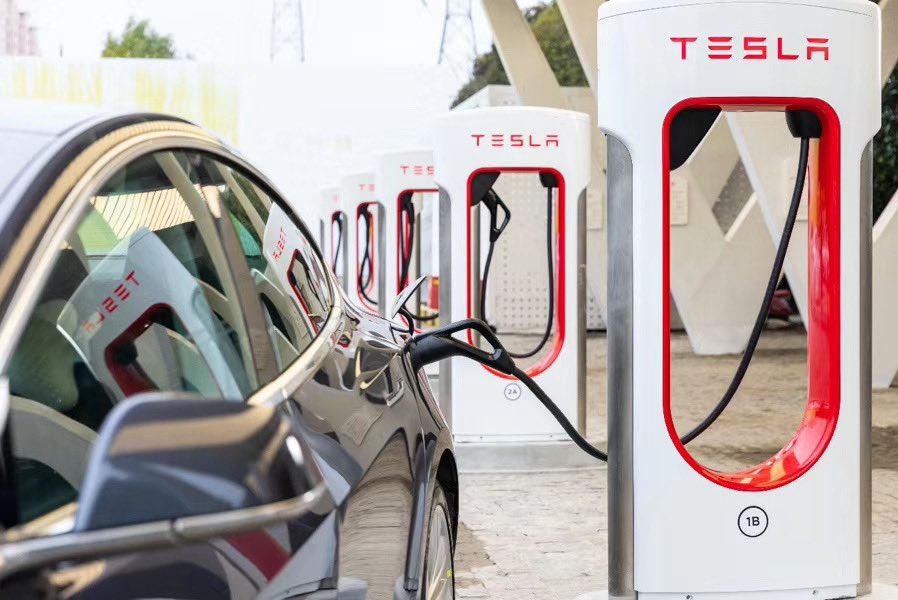
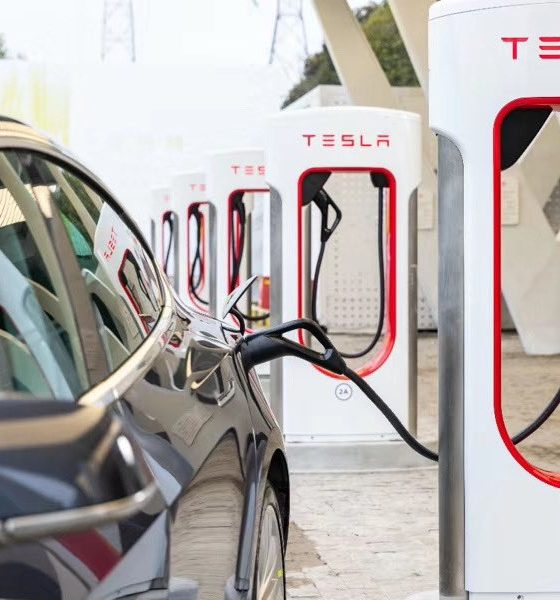
News
Indian State of Delhi scraps electric vehicle subsidies
The Indian State of Delhi has decided to do away with electric vehicle subsidies, incentivizing drivers to purchase EVs.
New reports from various Indian media outlets have stated that the country’s electric vehicle policy has been revised with the intention of withdrawing EV subsidy programs that offer rebates when EVs are purchased. The move is somewhat shocking, considering several Indian government officials are petitioning for large-scale battery manufacturers to set up production lines in India. Additionally, several well-known EV companies, including Tesla, are attempting to enter the market with the help of government officials who are attempting to reach terms with the Silicon Valley-based car company that would see its EVs enter the market through imports.
Delhi offered electric vehicle drivers a subsidy of ₹10,000 ($135) per kWh of battery capacity, with benefits being capped at ₹1.5 lakh ($2,020) per vehicle. Drivers also had road tax and registration fees waived when purchasing an electric vehicle.
Earlier this week, Delhi Transport Minister Kailash Gahlot said that the government was planning to scrap the subsidies for passenger and privately-owned vehicles in favor of two-wheeler, freight, and public transport vehicles instead. “The electric cars segment has received the required push in Delhi. Our focus now is to tap the two-wheeler, freight, and public transport segments of electric vehicles (EVs) as they constitute a major chunk of Delhi’s over 10 million registered vehicles. They also ply on the road more as compared to private cars, thereby causing more pollution,” Gahlot said to the Hindustan Times.
The government now wants to offer subsidies to those who are in need of more benefits and breaks, which includes the commerce and logistics sectors. “Actually, a subsidy is not required for e-cars as such because those who can afford to pay around ₹15 lakh for a vehicle do not care if the cost is ₹1-2 lakh more, sans the subsidy,” Gahlot said. “Our aim is to provide the subsidy to those who need it the most, and they include auto drivers, two-wheeler owners, delivery partners, and so on.”
Delhi has only offered EV subsidies since August 2020. However, the offerings have established a notable amount of demand from Indian consumers. Politicians hope that the incentives, when offered to commercial entities, will have the same effect. “We are witnessing good results of our electric vehicle policy, and the adoption of such vehicles is gaining pace. We are committed to realizing the dream of making Delhi the country’s electric vehicle capital, according to the vision of Chief Minister Arvind Kejriwal,” Gahlot also said.
Delhi has registered 7,869 EVs from July to September, with August and October showing increased figures of 22,805 units purchased. In just four months, the State has registered nearly 31,000 EVs, meaning the incentives have worked. It still accounts for a small portion of the total automotive market in the region, which spans across 10 million total registered vehicles in the private sector.
I’d love to hear from you! If you have any comments, concerns, or questions, please email me at joey@teslarati.com. You can also reach me on Twitter @KlenderJoey, or if you have news tips, you can email us at tips@teslarati.com.

Elon Musk
Tesla Full Self-Driving set to get an awesome new feature, Elon Musk says
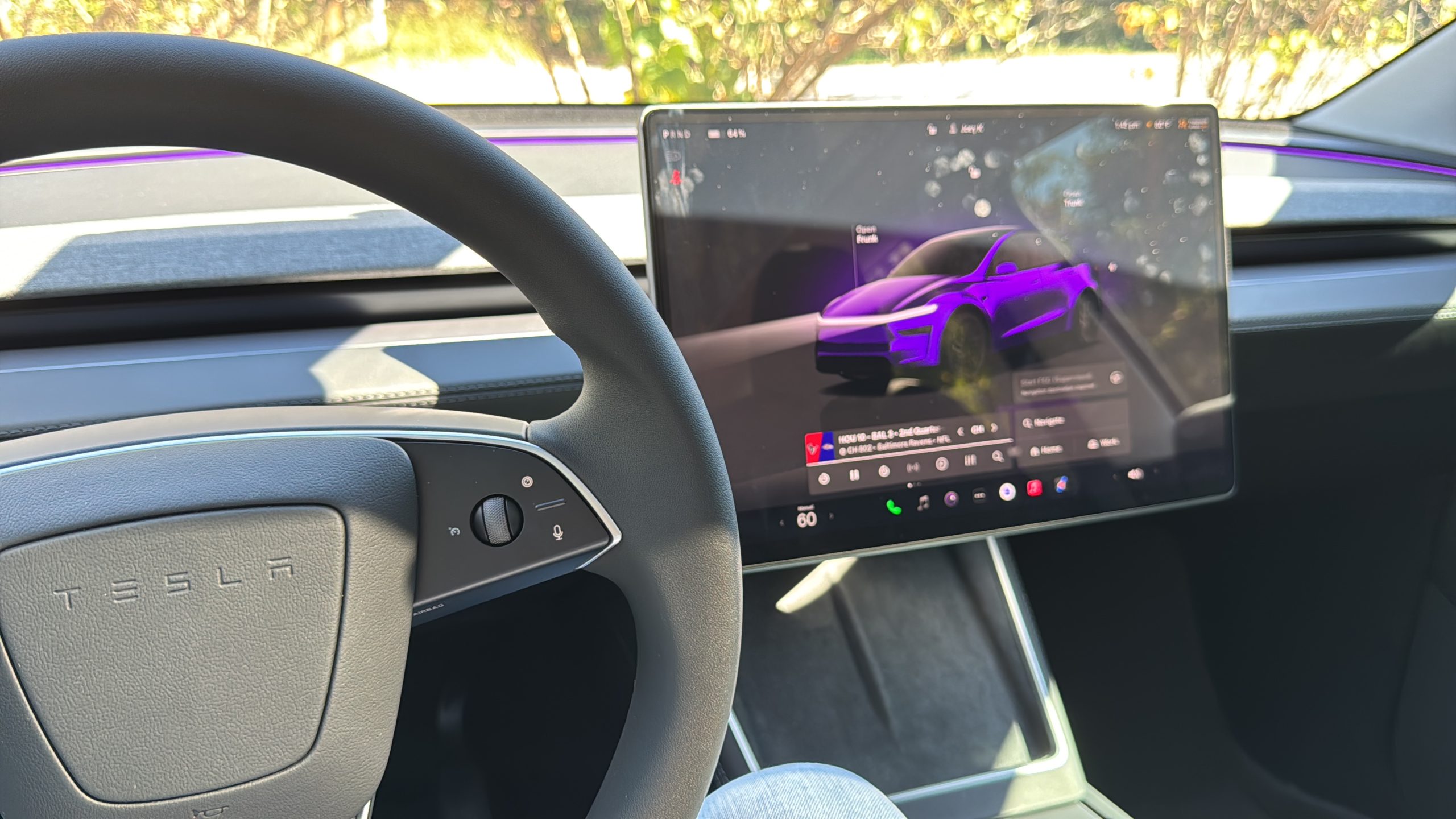
Tesla Full Self-Driving is set to get an awesome new feature in the near future, CEO Elon Musk confirmed on X.
Full Self-Driving is the company’s semi-autonomous driving program, which is among the best available to the general public. It still relies on the driver to ultimately remain in control and pay attention, but it truly does make traveling less stressful and easier.
However, Tesla still continuously refines the software through Over-the-Air updates, which are meant to resolve shortcomings in the performance of the FSD suite. Generally, Tesla does a great job of this, but some updates are definitely regressions, at least with some of the features.
Tesla Cybertruck owner credits FSD for saving life after freeway medical emergency
Tesla and Musk are always trying to improve the suite’s performance by fixing features that are presently available, but they also try to add new things that would be beneficial to owners. One of those things, which is coming soon, is giving the driver the ability to prompt FSD with voice demands.
For example, asking the car to park close to the front door of your destination, or further away in an empty portion of the parking lot, would be an extremely beneficial feature. Adjusting navigation is possible through Grok integration, but it is not always effective.
Musk confirmed that voice prompts for FSD would be possible:
Coming
— Elon Musk (@elonmusk) February 21, 2026
Tesla Full Self-Driving is a really great thing, but it definitely has its shortcomings. Navigation is among the biggest complaints that owners have, and it is easily my biggest frustration with using it. Some of the routes it chooses to take are truly mind-boggling.
Another thing it has had issues with is being situated in the correct lane at confusing intersections or even managing to properly navigate through local traffic signs. For example, in Pennsylvania, there are a lot of stop signs with “Except Right Turn” signs directly under.
This gives those turning right at a stop sign the opportunity to travel through it. FSD has had issues with this on several occasions.
Parking preferences would be highly beneficial and something that could be resolved with this voice prompt program. Grocery stores are full of carts not taken back by customers, and many people choose to park far away. Advising FSD of this preference would be a great advantage to owners.
Cybertruck
Elon Musk clarifies Tesla Cybertruck ’10 day’ comment, fans respond
Some are arguing that the decision to confirm a price hike in ten days is sort of counterproductive, especially considering it is based on demand. Giving consumers a timeline of just ten days to make a big purchase like a pickup truck for $60,000, and basically stating the price will go up, will only push people to make a reservation.
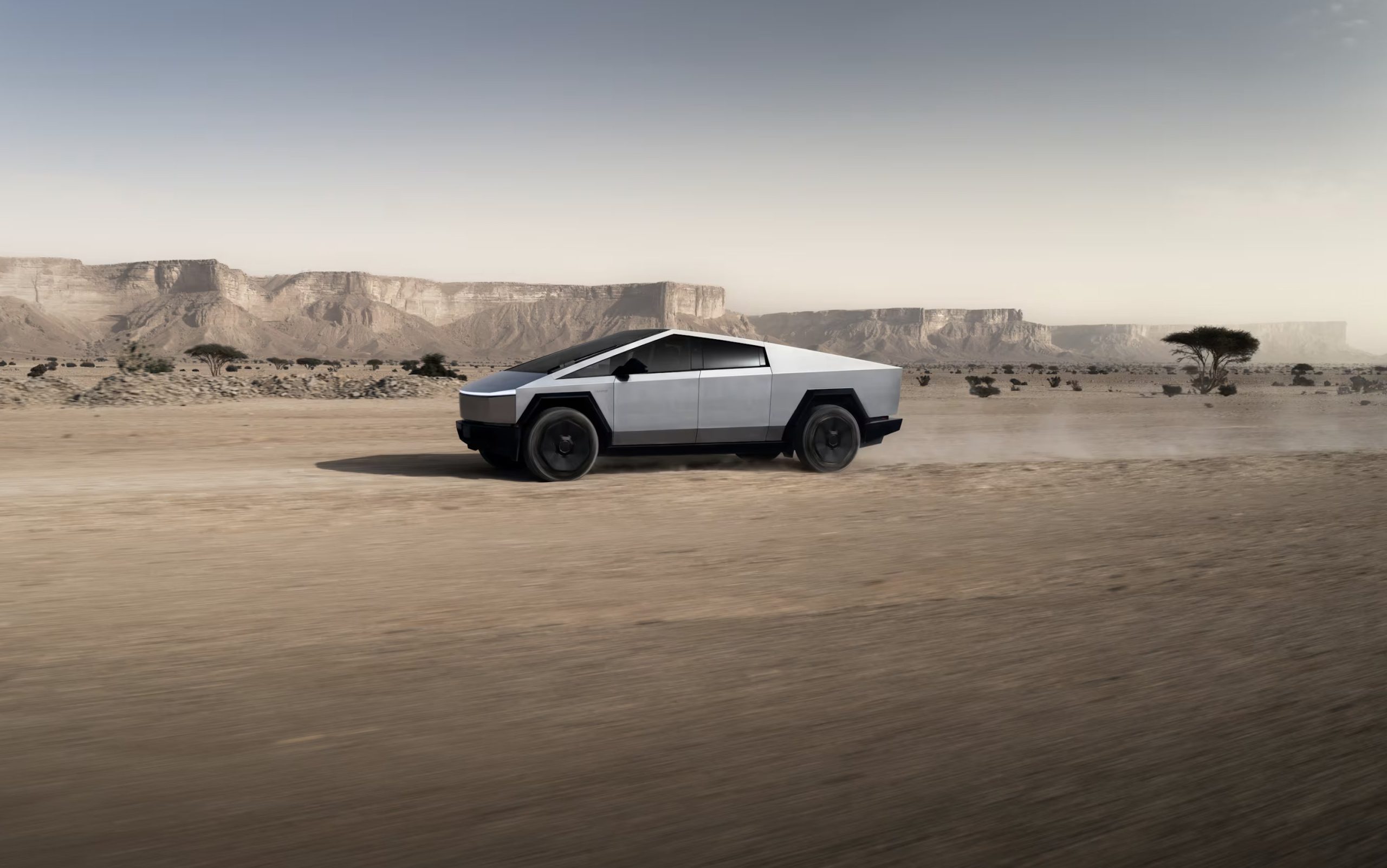
Elon Musk has clarified what he meant by his comment on X yesterday that seemed to indicate that Tesla would either do away with the new All-Wheel-Drive configuration of the Cybertruck or adjust the price.
The response was cryptic as nobody truly knew what Musk’s plans were for the newest Tesla Cybertruck trim level. We now have that answer, and fans of the company are responding in a polarizing fashion.
On Thursday night, Tesla launched the Cybertruck All-Wheel-Drive, priced competitively at $59,990. It was a vast improvement from the Rear-Wheel-Drive configuration Tesla launched last year at a similar price point, which was eventually cancelled just a few months later due to low demand.
Tesla launches new Cybertruck trim with more features than ever for a low price
However, Musk said early on Friday, “just for 10 days,” the truck would either be available or priced at $59,990. We can now confirm Tesla will adjust the price based on more recent comments from the CEO.
Musk said the price will fluctuate, but it “depends on how much demand we see at this price level.”
Depends on how much demand we see at this price level
— Elon Musk (@elonmusk) February 20, 2026
Some are defending the decision, stating that it is simply logical to see how the Cybertruck sells at this price and adjust accordingly.
Case 1: You don’t like it -> don’t buy it
Case 2 (me): You like it, it’s fits your situation and needs -> you buy it.
Case 3: Complain endlessly for no reason, you weren’t going to get one anyway, but you want people to know you’re mad, for some reason.Silly netizens.
— Ryan Scanlan 👥 (@Xenius) February 21, 2026
Others, not so much.
Alright I’m obviously not the one successful enough to be calling the shots at Tesla and worth almost a trillion dollars
But people were excited about the awesome Cybertruck news and then it got taken away, that’s why people are annoyed. The wording felt more like a threat.… pic.twitter.com/NWVNklcXoJ
— Dirty Tesla (@DirtyTesLa) February 21, 2026
No but fr wtf you doing dude???????
— Greggertruck (@greggertruck) February 20, 2026
It’s how it was communicated.
If it had been stated clearly on the website for everyone to see, everyone would be fine.— KiTT_2020 (@kitt_2020) February 20, 2026
Some are arguing that the decision to confirm a price hike in ten days is sort of counterproductive, especially considering it is based on demand. Giving consumers a timeline of just ten days to make a big purchase like a pickup truck for $60,000, and basically stating the price will go up, will only push people to make a reservation.
Demand will look strong because people want to lock in this price. The price will inevitably go up, and demand for the trim will likely fall a bit because of the increased cost.
Many are arguing Musk should have kept this detail internal, but transparency is a good policy to have. It is a polarizing move to confirm a price increase in just a week-and-a-half, but the community is obviously split on how to feel.
Cybertruck
Tesla Cybertruck’s newest trim will undergo massive change in ten days, Musk says
It appears as if the new All-Wheel-Drive trim of Cybertruck won’t be around for too long, however. Elon Musk revealed this morning that it will be around “only for the next 10 days.”
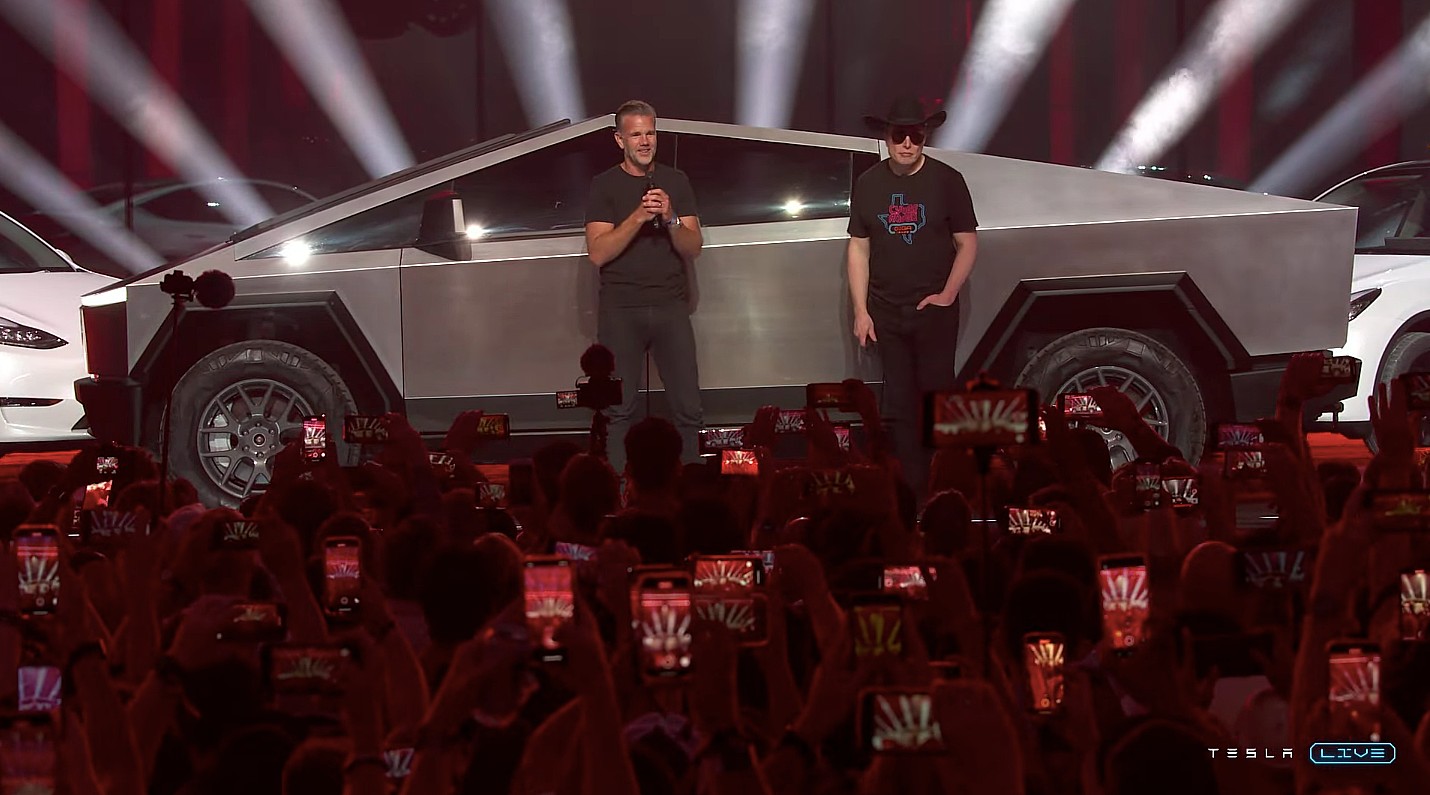
Tesla’s new Cybertruck trim has already gotten the axe from CEO Elon Musk, who said the All-Wheel-Drive configuration of the all-electric pickup will only be available “for the next ten days.”
Musk could mean the price, which is $59,990, or the availability of the trim altogether.
Last night, Tesla launched the All-Wheel-Drive configuration of the Cybertruck, a pickup that comes in at less than $60,000 and features a competitive range and features that are not far off from the offerings of the premium trim.
Tesla launches new Cybertruck trim with more features than ever for a low price
It was a nice surprise from Tesla, considering that last year, it offered a Rear-Wheel-Drive trim of the Cybertruck that only lasted a few months. It had extremely underwhelming demand because it was only $10,000 cheaper than the next trim level up, and it was missing a significant number of premium features.
Simply put, it was not worth the money. Tesla killed the RWD Cybertruck just a few months after offering it.
With the news that Tesla was offering this All-Wheel-Drive configuration of the Cybertruck, many fans and consumers were encouraged. The Cybertruck has been an underwhelming seller, and this seemed to be a lot of truck for the price when looking at its features:
- Dual Motor AWD w/ est. 325 mi of range
- Powered tonneau cover
- Bed outlets (2x 120V + 1x 240V) & Powershare capability
- Coil springs w/ adaptive damping
- Heated first-row seats w/ textile material that is easy to clean
- Steer-by-wire & Four Wheel Steering
- 6’ x 4’ composite bed
- Towing capacity of up to 7,500 lbs
- Powered frunk
It appears as if this trim of Cybertruck won’t be around for too long, however. Musk revealed this morning that it will be around “only for the next 10 days.”
Only for the next 10 days https://t.co/82JnvZQGh2
— Elon Musk (@elonmusk) February 20, 2026
Musk could mean the price of the truck and not necessarily the ability to order it. However, most are taking it as a cancellation.
If it is, in fact, a short-term availability decision, it is baffling, especially as Tesla fans and analysts claim that metrics like quarterly deliveries are no longer important. This seems like a way to boost sales short-term, and if so many people are encouraged about this offering, why would it be kept around for such a short period of time?
Some are even considering the potential that Tesla axes the Cybertruck program as a whole. Although Musk said during the recent Q4 Earnings Call that Cybertruck would still be produced, the end of the Model S and Model X programs indicates Tesla might be prepared to do away with any low-volume vehicles that do not contribute to the company’s future visions of autonomy.
The decision to axe the car just ten days after making it available seems like a true head-scratcher.








